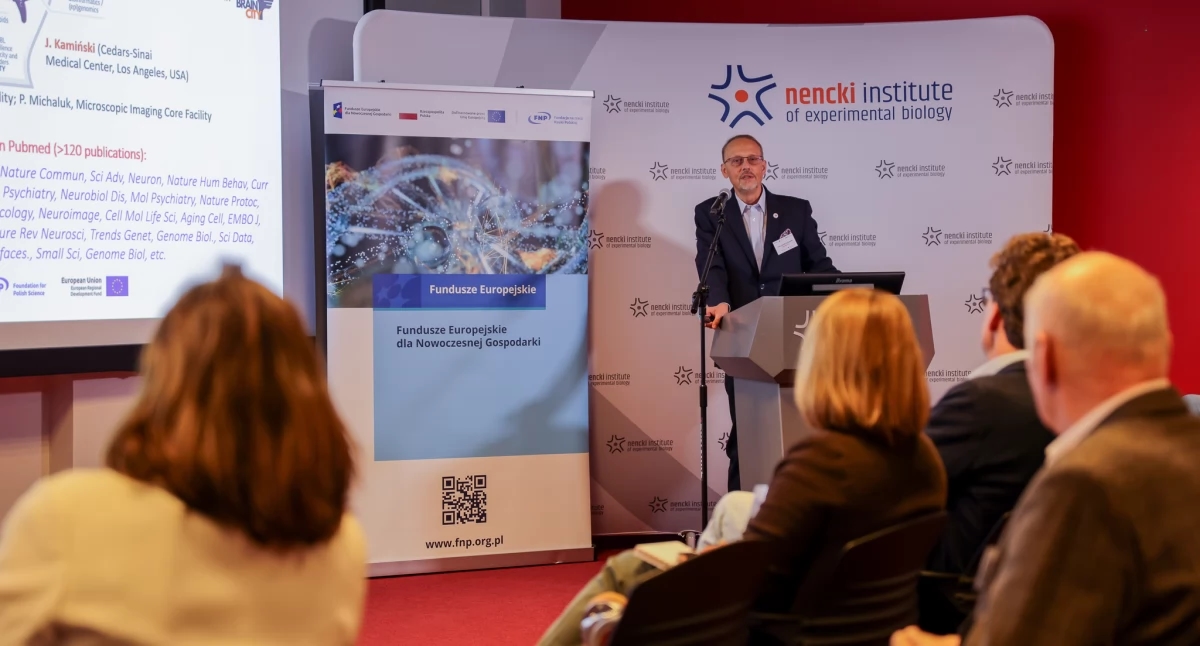Braincity has launched. Research is intended to help patients

The BRAINCITY Center of Excellence for Neuronal Plasticity and Brain Diseases was inaugurated in Warsaw on Tuesday. Established by the Nencki Institute of Experimental Biology of the Polish Academy of Sciences in collaboration with the European Molecular Biology Laboratory (EMBL), the center conducts research on neural plasticity—the brain's ability to reorganize and regenerate. This process plays a key role in learning, memory, and recovery from injury or disease, among other things.
Funds for the centre in the amount of PLN 30 million (for the years 2025–2029) come from the International Research Agendas programme of the Foundation for Polish Science, co-financed by the European Union from the European Regional Development Fund.
As Professor Leszek Kaczmarek , director of the center and head of the Neurobiology Laboratory at the Nencki Institute of the Polish Academy of Sciences, reminded us, this is the second edition of BRAINCITY (it previously operated from 2019 to 2023). Scientists will continue and expand on previous research. The center is comprised of several collaborative laboratories that share a common interest in neuronal and synaptic plasticity of the brain.
Professor Kaczmarek explained that the concept of "plasticity" in relation to the brain was introduced by Professor Jerzy Konorski. Neurons possess functional-electrical potentials that enable the transmission of information. Plasticity is the ability to modify this excitability, enabling changes in the neural circuits responsible for memory, learning, emotion, and thinking.
BRAINCITY focuses on both physiological plasticity , responsible for normal brain functions, and pathological plasticity , related to neuropsychiatric diseases (synaptopathies).
Epilepsy and Brain Injury : The "Targeted Therapy in Epilepsy and Brain Injury" project, led by Dr. Adam Gorlewicz, aims to develop a clinical trial protocol for patients with drug-resistant epilepsy. The therapy is designed to block the MMP-9 enzyme and modulate the action of glutamate, the main neurotransmitter that excites neurons.
Depression and Addiction : As part of the track "Modulation of Plasticity in the Central Nucleus of the Amygdala", Prof. Ewelina Knapska and Dr. hab. Anna Beroun are investigating plastic changes in this area of the brain that can be used in the treatment of depression and addiction, including using ultrasound or psychedelic substances.
Platform for testing addiction therapy : Under the supervision of Dr. Marzena Stefaniuk, an experimental model of alcohol addiction in mice and new equipment for studying addiction-related behaviors are being created.
EEG and Artificial Intelligence : The track "EEG as a tool for assessing therapy effectiveness", led by Prof. Janusz Kamiński , aims to develop AI tools for recognizing patterns of neuropsychiatric conditions in EEG readings, supporting psychiatric diagnostics.
Professor Kaczmarek emphasized that this edition of BRAINCITY places greater emphasis on the practical application of research results , thanks in part to cooperation with EMBL, one of the world's leading research centers. The EMBLEM subsidiary specializes in the commercialization of scientific research, which can accelerate the implementation of innovative therapies in medicine.
Source: PAP/sko Updated: 14/10/2025 16:30
politykazdrowotna





